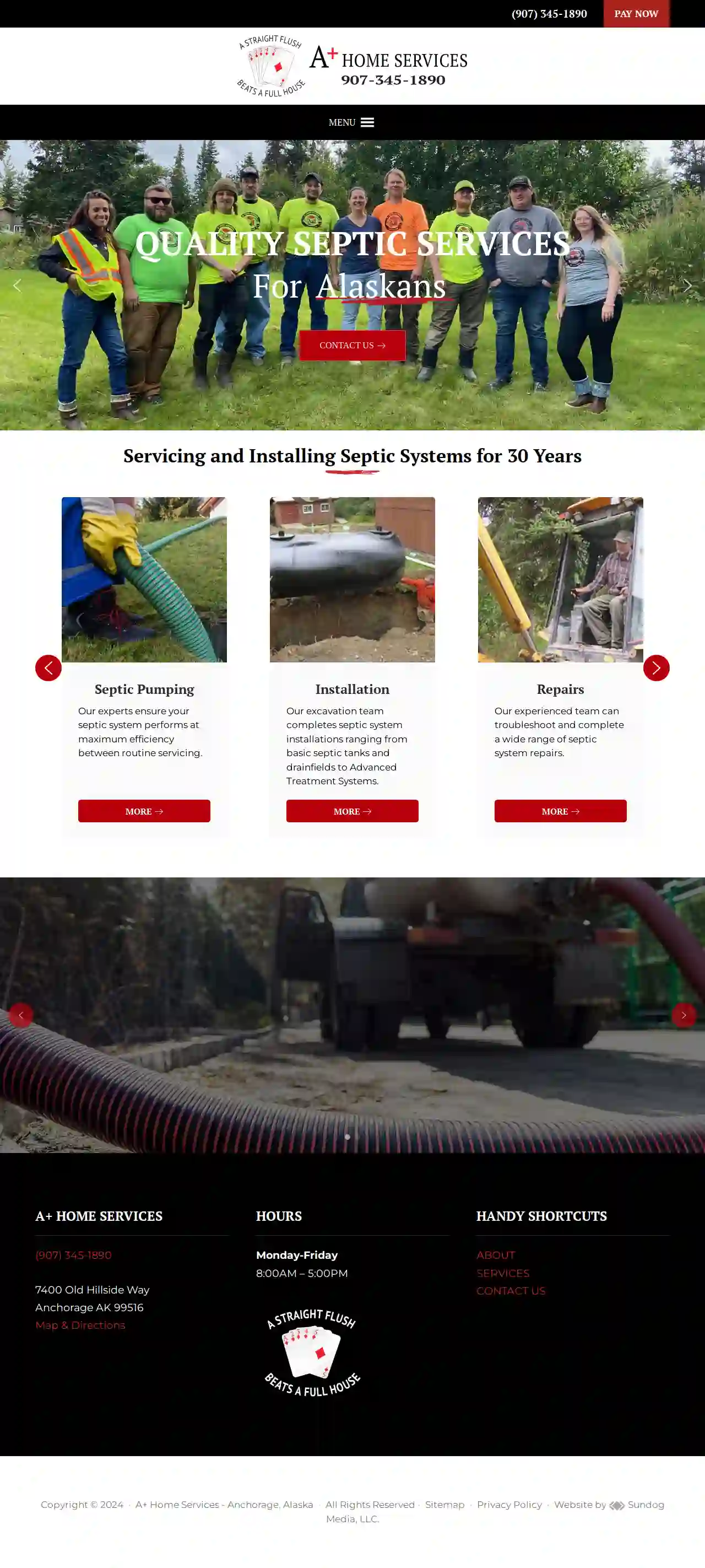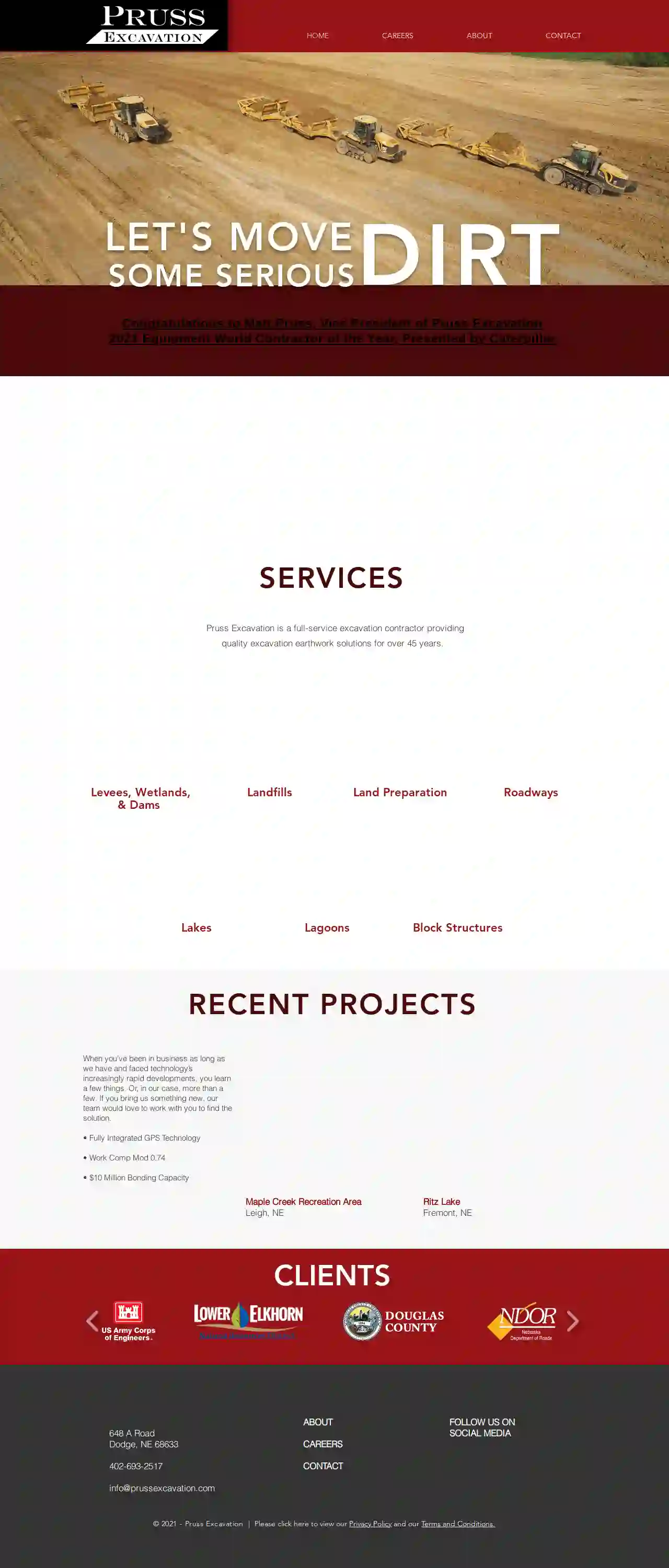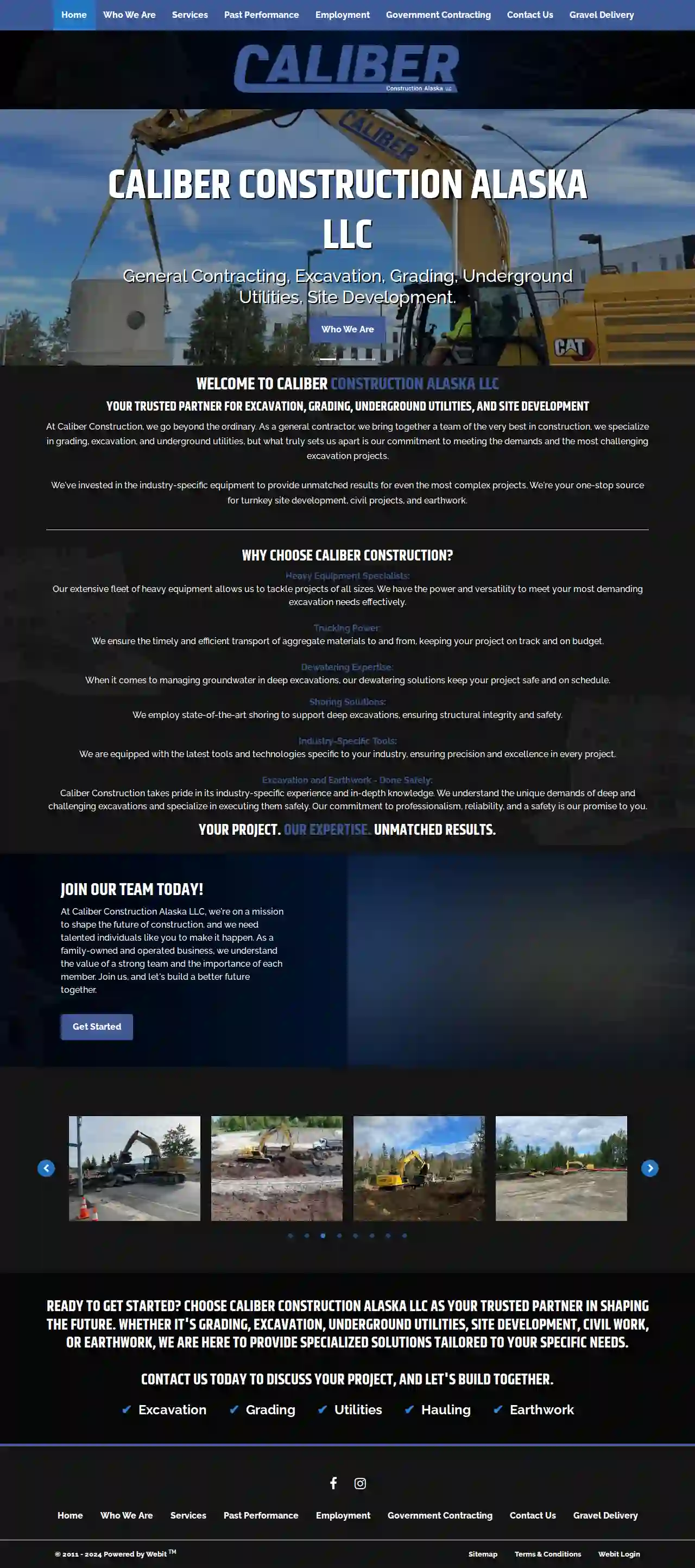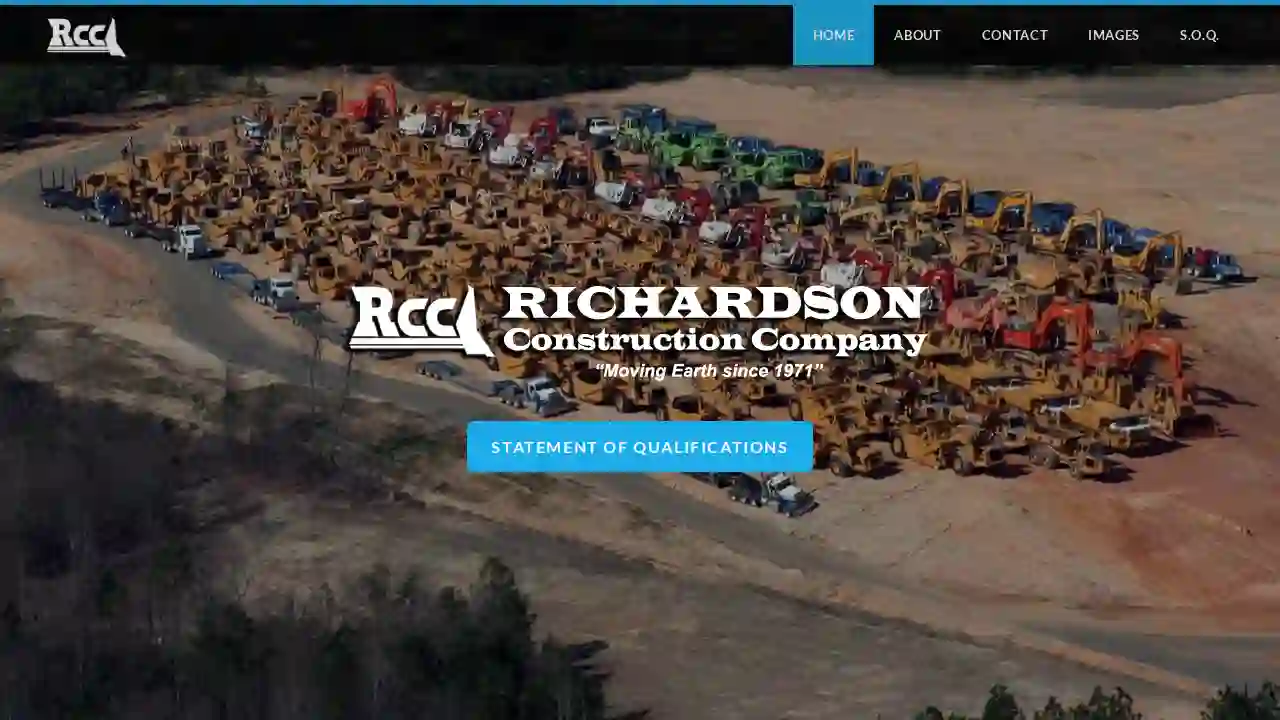Excavation Contractors Columbia
Find the best Excavation Contractors in Columbia
Receive up to 3 Excavation Contractors quotes for your project today! Compare profiles, reviews, accreditations, portfolio, etc... and choose the best deal.

Rolle's Enhanced Land Clearing & Lawn Care Services
11000 Rollens Rd, Statesboro, 31408, USAbout Rollens Enhanced Land Clearing Rollens Enhanced Land Clearing is a family-owned and operated business with over 20 years of experience in the land clearing industry. We are committed to providing our clients with the highest quality service and workmanship. We are fully licensed and insured, and we are dedicated to safety and environmental responsibility. Our team of experienced professionals is equipped with the latest technology and equipment to handle any land clearing project, big or small. We offer a wide range of services, including: Site preparation Tree removal Brush clearing Land grading Demolition And more! We are committed to providing our clients with a smooth and efficient experience. We work closely with our clients to understand their needs and ensure that their project is completed on time and within budget. We are proud of our reputation for quality, reliability, and customer satisfaction. Contact us today for a free consultation.
- Services
- Why Us?
- Testimonials
Get Quote
Tri-County Land Services LLC
519 reviewsAnderson, USRESIDENTIAL AND COMMERCIAL LAND clearing and Excavation SERVICES IN SOUTH CAROLINA EXPERT LAND Clearing SERVICES IN SOUTH CAROLINA Tri-County Land Services Offers:Commercial Grading & Land Clearing | Residential Land Clearing Site Prep | Pond Building & Repairing | Full-Structural Demolition
- Services
- Why Us?
- Testimonials
- Gallery
Get Quote
M-Alaska Construction
44 reviews5050 Cordova Street, Anchorage, 99503, USAbout Us M-Alaska Construction is a general contractor leading the industry throughout Alaska. Our key personnel boast over 30 years of Alaskan experience in a wide range of highly technical construction projects across the state. Through strategic growth and development, we remain a diversified contractor specializing in commercial, industrial, and structural construction. Whether your project involves tenant improvements or a ground-up build, we excel in delivering exceptional service and high-quality construction projects.
- Services
- Why Us?
- Gallery
Get Quote
A+ Home Services, Inc.
4.311 reviews7400 Old Hillside Way, Anchorage, 99516, USA+ Home Services: Your Trusted Septic Experts in Anchorage, Alaska For over 30 years, A+ Home Services has been the go-to choice for Alaskans seeking reliable and professional septic services. We pride ourselves on our commitment to quality workmanship, customer satisfaction, and a deep understanding of the unique challenges posed by Alaska's climate and terrain. Our team of experienced professionals is dedicated to providing a comprehensive range of services, from routine septic pumping and maintenance to complex system installations and repairs. We are also authorized installers for Orenco Systems, Inc., offering advanced solutions like lift stations, sand filters, and Advantex Treatment Systems. Whether you need a simple septic tank inspection or a complete system overhaul, A+ Home Services is here to help. We offer personalized guidance and solutions tailored to your specific needs, ensuring your septic system operates efficiently and reliably for years to come. Contact us today to schedule a consultation and experience the A+ difference!
- Services
- Why Us?
- Testimonials
- Gallery
Get Quote
Pruss Excavation
4.313 reviews648 A Road, Dodge, 68633, USPruss Excavation: Your Trusted Partner for Quality Excavation Solutions For over 45 years, Pruss Excavation has been a leading provider of full-service excavation services, delivering exceptional earthwork solutions to clients across Nebraska. Our commitment to quality, safety, and customer satisfaction has earned us a reputation for excellence in the industry. We understand that every project is unique, and we take a personalized approach to ensure that your needs are met. Our experienced team of professionals is equipped with the latest technology and equipment to handle any excavation project, from small residential projects to large-scale commercial developments. At Pruss Excavation, we pride ourselves on our dedication to safety and environmental responsibility. We are committed to operating in a sustainable manner and minimizing our impact on the environment. Our team is fully trained and certified to ensure that all projects are completed safely and efficiently. Whether you need site preparation, utility installation, or any other excavation services, Pruss Excavation is your trusted partner. Contact us today to discuss your project and learn how we can help you achieve your goals.
- Services
- Why Us?
- Gallery
Get Quote
Caliber Construction Alaska LLC
1Anderson, US- Services
- Why Us?
Get Quote
A A Dirtwork & Snow Removal
4.67 reviewsAnderson, US- Services
- Why Us?
Get Quote
ClearScape Solutions
4.714 reviewsAnderson, US- Services
- Why Us?
Get Quote
Richardson Construction Co
4.18 reviewsAnderson, USAbout Richardson Construction Company We're a small business that accomplishes big things! After over thirty-five years in the business and growing from 2 employees to 150 and everywhere in between, my favorite part is still moving dirt with the Richardson Team. Richardson Construction Company has provided for us, a job doing what we love to do, and the opportunity to continue improving and expanding how and where we get to do it. Please download our Statement of Qualifications for a history of our work, visit the photo link to see some photo and video presentations of our most recent work, and visit the contact link to contact us with any questions you may have. We look forward to working with you in the future to accomplish more great things! About President Bobby Richardson Born: Columbia, South Carolina - 1953 Started Company: 1971 Married to the former Fran (Gibbons) Two Children: Joseph (married to the former Katie Grimes) and Lauren Three Grandchildren: Bobby, Charlie, and Sarah Frances
- Services
- Why Us?
- Gallery
Get Quote- Jo
Johnson Excavating, Inc.
52 reviewsAnderson, US- Services
- Why Us?
- Gallery
Get Quote
Over 3,943+ Excavation Companies on our platform
Our excavation experts operate in Columbia and beyond!
ExcavationHQ has curated and vetted Top Excavation Contractors arround Columbia. Find a trustworthy contractor today.
Frequently Asked Questions About Excavation Contractors
- Sloped Property: Your property has a significant slope, making it prone to soil erosion or landslides.
- Creating Usable Space: You want to level off a sloped area to create a flat surface for patios, gardens, or other outdoor spaces.
- Preventing Damage: Erosion is threatening existing structures, driveways, or walkways.
- Landscaping Features: You're incorporating tiered gardens, raised beds, or other landscaping elements requiring soil retention.
- Determine the Area: Measure the length and width of the area you want to fill. Multiply them to get the area in square feet (or meters).
- Determine the Depth: Measure the difference between the existing grade and the desired grade (how much you need to raise the ground). This is the depth of fill required.
- Calculate Volume: Multiply the area (step 1) by the depth (step 2) to get the volume in cubic feet (or meters).
- Account for Compaction: Fill dirt compacts when it settles, so add 10% to 25% to the calculated volume to account for compaction. The exact percentage depends on the type of fill material.
- Excavators: Versatile machines with a bucket, arm, and rotating cab for digging, lifting, and moving earth.
- Backhoes: Similar to excavators but with a digging bucket on the back and a loader bucket on the front, ideal for trenching and smaller excavations.
- Bulldozers: Powerful machines with a large blade for pushing earth, clearing land, and leveling surfaces.
- Skid Steers: Compact and maneuverable loaders with various attachments (buckets, forks) for digging, loading, and grading in tight spaces.
- Trenchers: Specialized machines for digging narrow trenches for utilities.
- Dump Trucks: Vehicles for hauling excavated material to disposal sites.
- Excavations Deeper Than a Certain Depth: This varies by jurisdiction, usually around 5 feet.
- Excavations Near Utilities: Digging near buried utilities (gas, water, electric) often requires permits and utility locates to prevent damage.
- Excavations Affecting Public Property: Projects impacting sidewalks, roads, or other public areas typically require permits.
- Excavations in Environmentally Sensitive Areas: Projects in wetlands, floodplains, or other sensitive areas might need special permits.
How do I know if I need a retaining wall?
How do I calculate how much dirt I need for fill?
What equipment is used for excavation?
Do I need a permit for excavation?
How do I know if I need a retaining wall?
- Sloped Property: Your property has a significant slope, making it prone to soil erosion or landslides.
- Creating Usable Space: You want to level off a sloped area to create a flat surface for patios, gardens, or other outdoor spaces.
- Preventing Damage: Erosion is threatening existing structures, driveways, or walkways.
- Landscaping Features: You're incorporating tiered gardens, raised beds, or other landscaping elements requiring soil retention.
How do I calculate how much dirt I need for fill?
- Determine the Area: Measure the length and width of the area you want to fill. Multiply them to get the area in square feet (or meters).
- Determine the Depth: Measure the difference between the existing grade and the desired grade (how much you need to raise the ground). This is the depth of fill required.
- Calculate Volume: Multiply the area (step 1) by the depth (step 2) to get the volume in cubic feet (or meters).
- Account for Compaction: Fill dirt compacts when it settles, so add 10% to 25% to the calculated volume to account for compaction. The exact percentage depends on the type of fill material.
What equipment is used for excavation?
- Excavators: Versatile machines with a bucket, arm, and rotating cab for digging, lifting, and moving earth.
- Backhoes: Similar to excavators but with a digging bucket on the back and a loader bucket on the front, ideal for trenching and smaller excavations.
- Bulldozers: Powerful machines with a large blade for pushing earth, clearing land, and leveling surfaces.
- Skid Steers: Compact and maneuverable loaders with various attachments (buckets, forks) for digging, loading, and grading in tight spaces.
- Trenchers: Specialized machines for digging narrow trenches for utilities.
- Dump Trucks: Vehicles for hauling excavated material to disposal sites.
Do I need a permit for excavation?
- Excavations Deeper Than a Certain Depth: This varies by jurisdiction, usually around 5 feet.
- Excavations Near Utilities: Digging near buried utilities (gas, water, electric) often requires permits and utility locates to prevent damage.
- Excavations Affecting Public Property: Projects impacting sidewalks, roads, or other public areas typically require permits.
- Excavations in Environmentally Sensitive Areas: Projects in wetlands, floodplains, or other sensitive areas might need special permits.